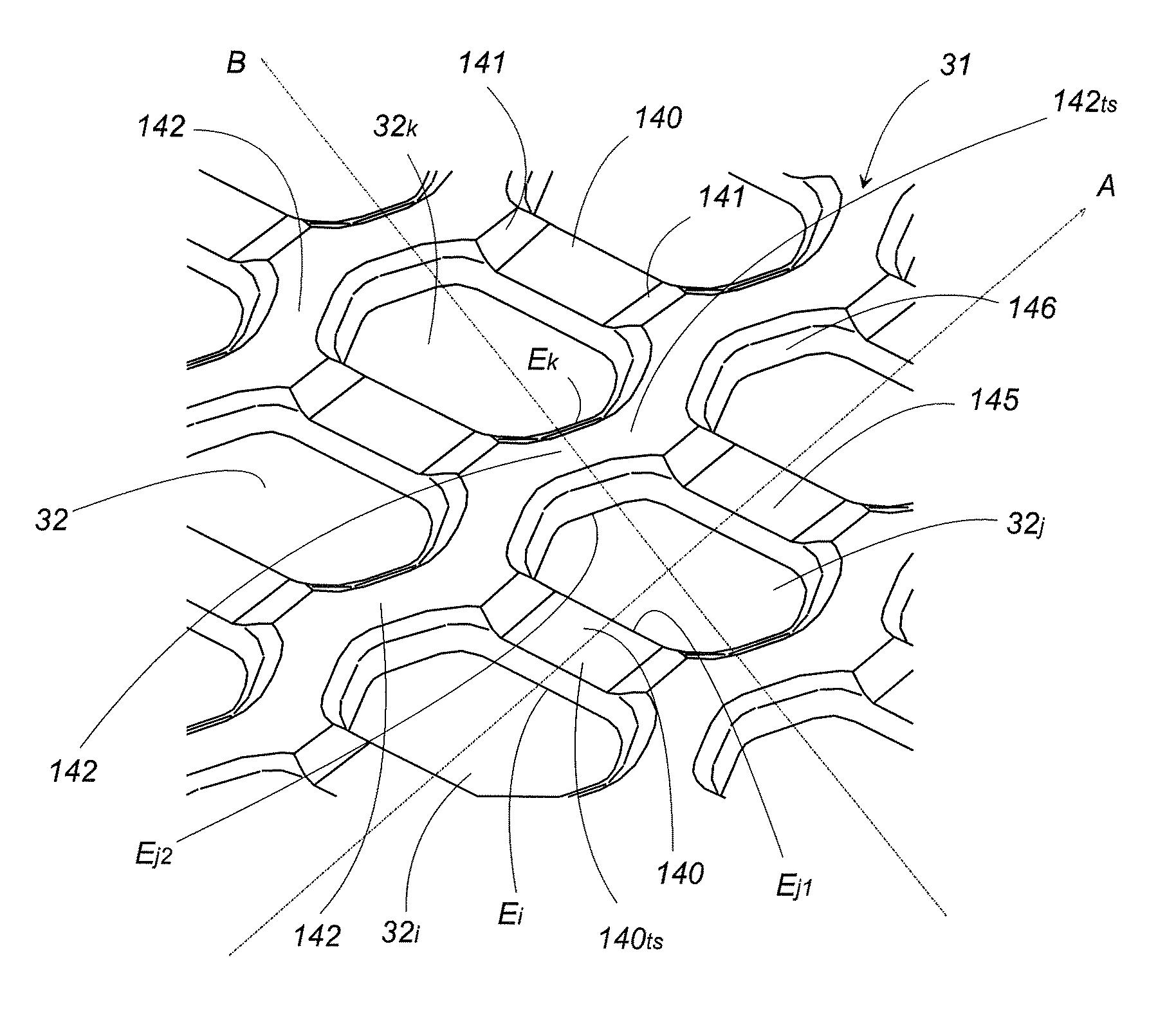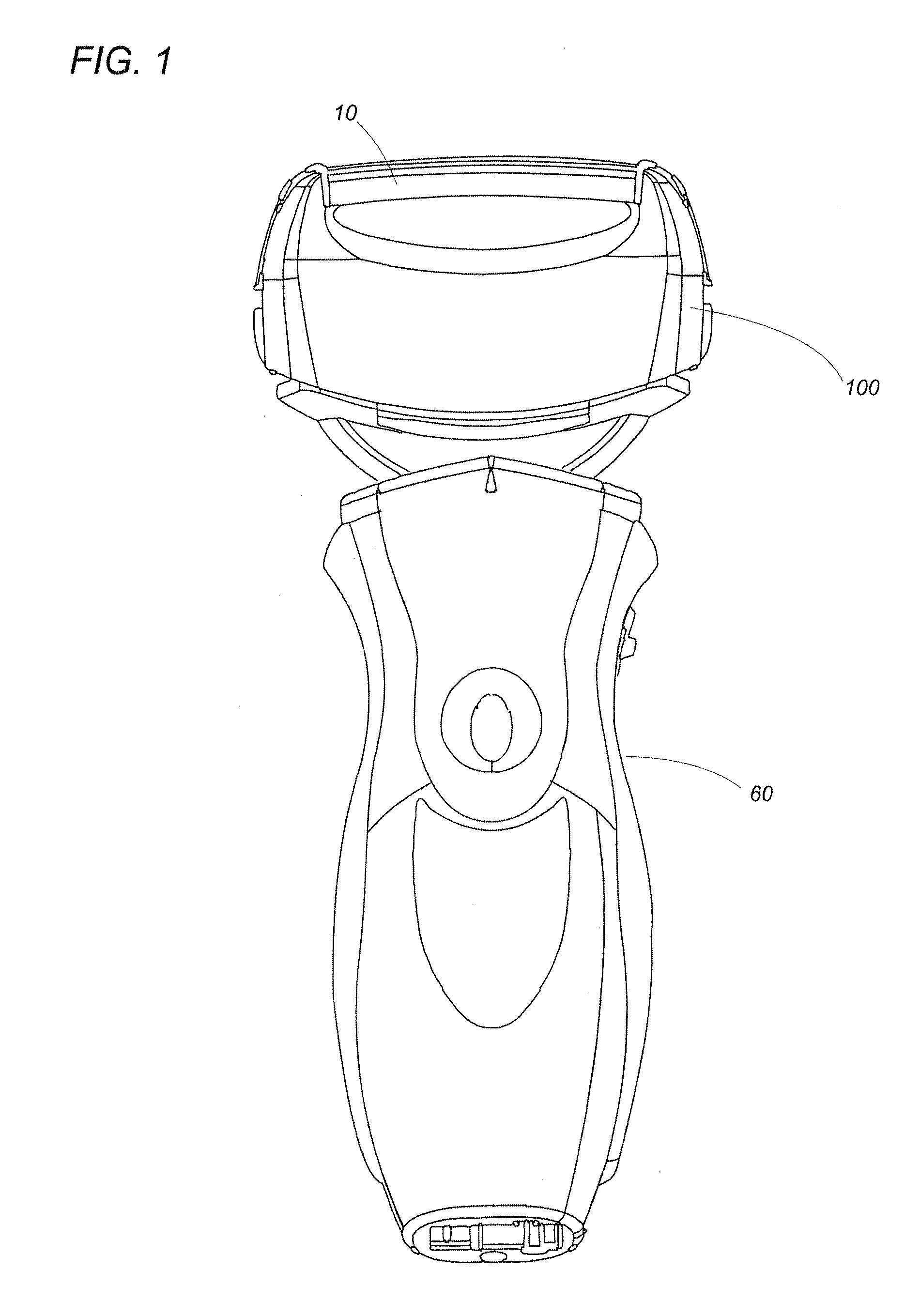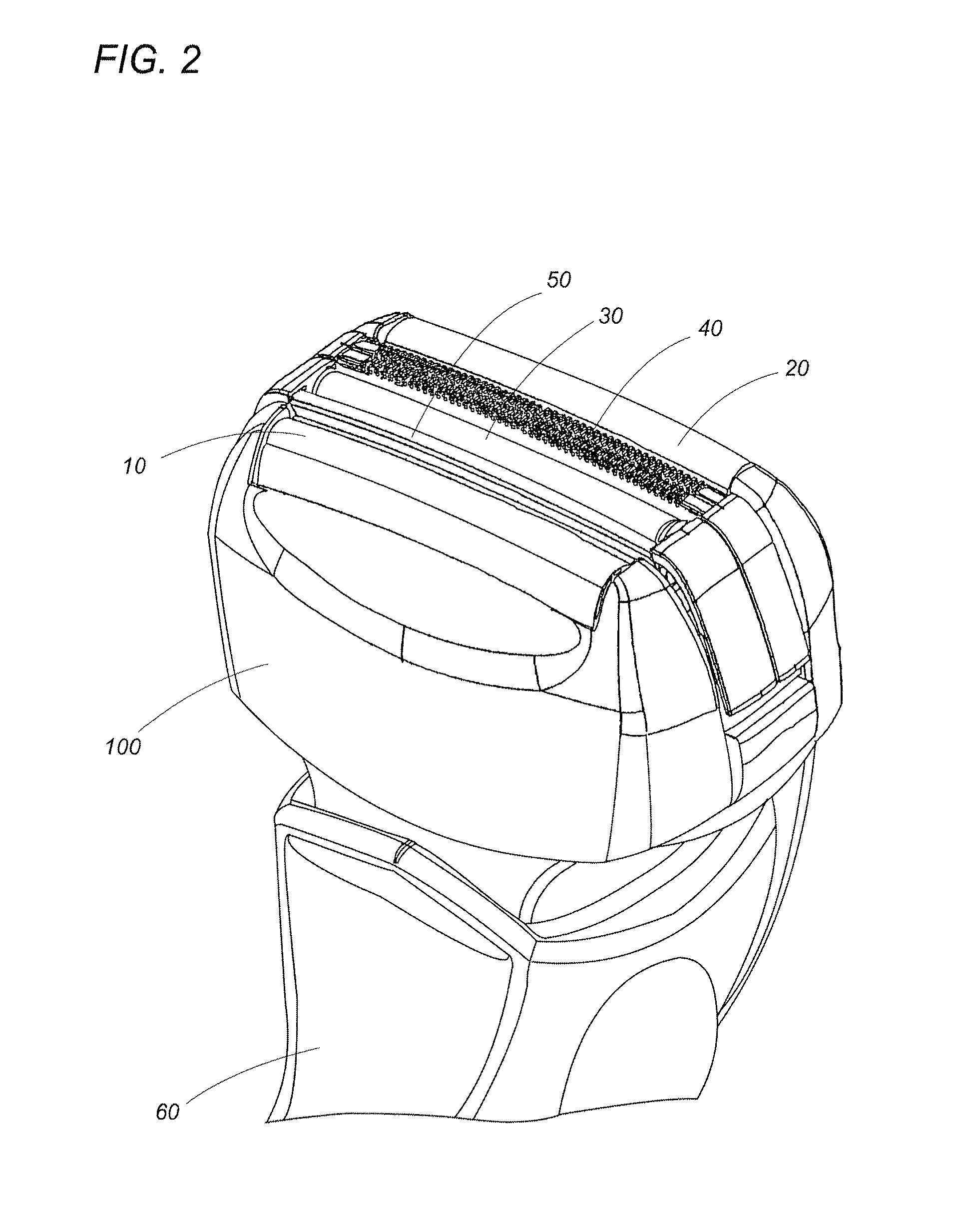Shaving foil for a dry shaver
a technology of shaving foil and dry shaver, which is applied in the direction of metal working devices, etc., can solve the problems of dragging the skin of users, not being able to smoothly guide the outer foil, and the accompanying use of thin shaving foil, so as to improve the effect of raising the hairs and reduce the mechanical strength
- Summary
- Abstract
- Description
- Claims
- Application Information
AI Technical Summary
Benefits of technology
Problems solved by technology
Method used
Image
Examples
Embodiment Construction
[0026]Referring now to FIGS. 1 to 5, there is shown a dry shaver utilizing a shaving foil in accordance with a preferred embodiment of the present invention. The dry shaver is composed of a hand grip 60 and a shaving head 100 mounted on top of the hand grip 60. The shaving head 100, which is elongated to have a lengthwise axis and a width axis, is connected to the grip 60 to be movable relative thereto about an axis perpendicular to the lengthwise axis. The shaving head 100 carries four differently configured cutters, namely, a semi-cylindrical first outer cutter 10, a semi-cylindrical second outer cutter 20, a semi-cylindrical finishing cutter 30, and a slit cutter 40. These cutters are all elongated along the lengthwise axis of the shaving head 100 and arranged in parallel relation with each other along the width axis.
[0027]The shaving head 100 is composed of a casing 120 and a frame 130 detachable to the casing 120. The casing 120 is of a water-proof structure accommodating there...
PUM
 Login to View More
Login to View More Abstract
Description
Claims
Application Information
 Login to View More
Login to View More - R&D
- Intellectual Property
- Life Sciences
- Materials
- Tech Scout
- Unparalleled Data Quality
- Higher Quality Content
- 60% Fewer Hallucinations
Browse by: Latest US Patents, China's latest patents, Technical Efficacy Thesaurus, Application Domain, Technology Topic, Popular Technical Reports.
© 2025 PatSnap. All rights reserved.Legal|Privacy policy|Modern Slavery Act Transparency Statement|Sitemap|About US| Contact US: help@patsnap.com



